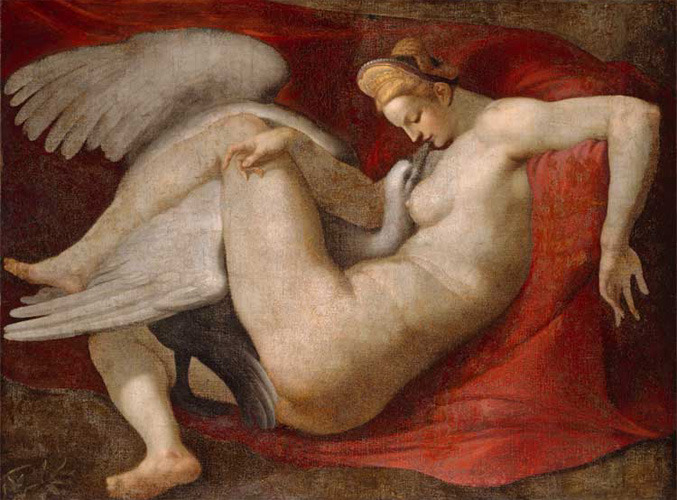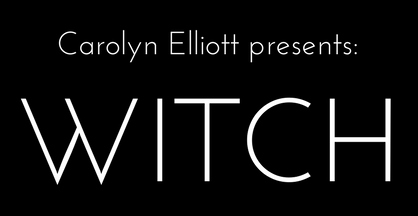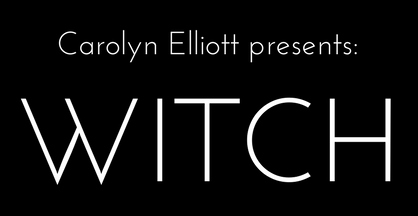by Amanda Yates Garcia
Years ago, while gasping for air near the window of a cramped Brooklyn party, I spoke with a pretty brunette whom I later realized drove me fucking crazy.
A design student at Pratt, she explained to me that she was a “scientific” person then name dropped Niels Bohr. An hour later, while I was in the next room, she made out with my (now ex) boyfriend.
Yes, it was annoying that another chic sucked face with my man while I was wrestling the last dregs of Modelo away from some social climbing TV producer – but let’s face it, that was probably my man’s idea. He was a musician after all.
What really annoyed me was that, after I’d mentioned I practice tarot, she smugly claimed herself as “scientific”, implying that I was not, and was therefore an idiot.
Sobered up and lying in bed next to my passed out and philandering other half that night, I was able to come up with all sorts of reasons why she didn’t know what she was talking about. Ahhh, but my brilliance came too late.
I’m writing now to spare you this special form of suffering, dear reader.
Here are a few points of psychic self-defense you can use next time you encounter a “scientific” Smuggle (smug + muggle) being dismissive of your magical practice, who really just wants to use their allegiance to post-Enlightenment rationalism to get laid at your expense. Or whatever.
1. Magic is Erotic
 Proving that magical swans have more fun…after Michelangelo
Proving that magical swans have more fun…after Michelangelo
One of the first and most effective “tricks” you learn as a magical practitioner is how to charge a sigil using sex magic.
First, you use language to identify the thing you’re calling in: “I have a tall, hot lover.”
Then, you give form to the language by making it into a symbol.
Finally, you charge it by working yourself up into an intense state of arousal, then visualize the sigil exploding out into the world when you come. Magic 101.
But charging sigils with orgasms isn’t the only reason why magic is erotic. In his book “The Gift,” Lewis Hynde defines eros as the principle of attraction, union, and involvement which binds things together.
Eros connects things, while logos (reason, logic, and the impulse to make things distinct) separates them.
Market-driven, capitalist systems such as ours run on the basis of logos because recognizing the connections between things doesn’t help the bottom line.
Does it help Charmin when you remember your ultra soft toilet paper comes from the destruction of old growth rainforest?
In systems of sympathetic magic, what a thing is made out of, the place where it was made, and the person who made it, all contribute permanently to the energy of that thing as it moves through the world.
So consider this proposition: Would you rather eat your ice cream from a bowl of river clay thrown by a pregnant woman, or a factory-produced plastic bowl packaged by a wage slave?
Belief in magic isn’t just about doing what is “rational”, it’s also about recognizing that our systems of belief determine the kind of world we create. Personally, I want my world to be an erotic one.
(If you do too, you might want to check out Carolyn Elliot’s article on Eros).
Psychic Self Defense Strike 1:
Don’t let your opponent define the question.
As soon as Smuggles ask whether or not magic is “true” they’ve ensnared you into their web of “rationality” where the onus is on you to prove magic lives up to their system of verification.
The question shouldn’t be “is magic true”, but, “is it useful”.
For people who want to live a life of erotic connection then it clearly is. If your “rational” opponent is too vanilla to appreciate the erotic beauty of magic, that’s not your problem.
2. Magic is Rebellious
 Fighting in the name of eros, an Amazon on horseback. By Medieval unknown author Bibliothèque nationale de France – Banque d’images
Fighting in the name of eros, an Amazon on horseback. By Medieval unknown author Bibliothèque nationale de France – Banque d’images
It’s rare to meet an American who brags about how much they tow the party line. But if Americans love the underdog so much, why does our pop culture have such an embarrassing crush on authority figures?
Can we just admit that the “maverick” Cop/Marine/Air Force pilot/Wall Street dude is still in deep cahoots with corporate patriarchy? In other words, he’s not the outsider underdog that he thinks he is.
The Army is inside! Cops are inside! Even the off-the-wall artist making work about testicles is on the inside (see Matthew Barney).
If you really want to know what it’s like to waft through the shadowy hinterlands, lobbing poison frogs at the status quo, try being a witch.
As in most mystical practices, there are no doctrines in witchcraft. No Pope. No bible. Though magical practices are some of the oldest activities of humankind, there is no ultimate authority on magic.
Even hierarchical patriarchs like Aleistar Crowley based his entire magical philosophy on the axiom: “Do as thou wilt shall be the whole of the law.”
Deep down, most witches are anarchists.
Magic is a mystical practice relying on direct revelation. No one asks you to accept anything on faith. Faith comes through experience. You don’t believe in the Goddess because the bible tells you so, you do it because you talk to Her, see Her, because She is all around you.
Because working with Her in various forms enriches your life.
No authority gets to declare the absolute value of magic. Magic is not bought and sold on Wall Street, nor is it subject to the Fed’s regulations.
When you experience magic for yourself, your reasons for participating will become clear to you.
Psychic Self Defense Strike 2:
Given the allegiance to the underdog in our culture, it’s likely that your opponent considers himself a free and independent thinker.
However, since he has probably never practiced magic, he actually doesn’t know what he’s talking about and is accepting that magic is “irrational” (i.e. pointless, untrue and embarrassing) based on his faith in the Enlightenment ideals of reason, science and liberty.
The problem is the Enlightenment and all its lofty ideals happened concurrently with the Age of Imperialism; you know, when all those liberty-loving rational folks of Europe colonized and exploited many of the “irrational” magical practitioners of the world in the name of progress?
It’s a funny coincidence that imperialist corporate patriarchy always finds itself on the side of reason and progress, while people who find divinity in nature and celebrate the spiritual potential of the imagination are “irrational” primitives in need of an education.
Chances are your opponent doesn’t see himself as an agent of The Man, dear reader, but if the shoe fits…
3. (Newsflash) Magic is not Science

Science aestheticized through alchemy. Opus Mago-Cabalisticum et Theologicum
The other day I met a guy who said that because he is a journalist, he only believes things that are verified by facts (implying that I, well, you know the drill). Scientists need that too. Turns out, a lot of people need that.
Some people roll their eyes at magic because it is not verified by facts. Facts are supposedly these objective things that exist in the world; when scientists do tests in the laboratory the facts rise to the top.
Of course we know that if you perform a spell in a lab over and over again it probably won’t work the way a scientific fact does.
Okay, but, two things:
First – Magic is not Science.
Magic is associative, poetic, based on meaning and relationships. Magic works through synchronicity, through shifts in perception. It’s subjective.
Closely associated with the troublesome arts of mythology, alchemy and poetry – when science says “jump”, magic doesn’t say “how high?” Instead, we witches take off on our brooms and zoom right over Monsanto’s monkey testing lab.
Our flight might happen during a trance, but it still happens. (See point #2 – magic is anti-authoritarian, including the authorities of science, sorry dudes)
And second – no one even has to choose between magic and science. That’s a false dichotomy.
You can believe in magic, practice it, enjoy it, and still believe the earth revolves around the sun and that hydrogen is the lightest element on the periodic table.
In any case, turns out all those scientific facts we’re so proud of in advanced industrial capitalism aren’t quite as reliable as we think they are.
Critical theorist Bruno Latour makes a strong argument that facts are just as constructed as beliefs, claiming that yes, we made up gods and astrology, etc. but that we also made up atoms and bacteria – but that doesn’t make them any less “real”.
Both the constructs of astrology and atoms allow us to see into realities that we previously didn’t have access to. And once we created these constructs, they went beyond us, they took on a life of their own. It’s complex shit but if you want to know more, click here.
And if you want to be a dick while talking to a Smuggle, simply roll your eyes, sigh and say, “Just read Latour.”
Psychic Self Defense Strike 3:
Judging magic by the same criteria that we judge science is ridiculous. It’s like reading a science book and saying it isn’t any good because it doesn’t rhyme and it isn’t in iambic pentameter.
Science doesn’t need to be be poetry. Magic doesn’t need to be science, etc. Put a couple in a lab and make them have sex over and over again — if their sex sucks does that mean they aren’t in love? Does that mean they never have hot sex? No. It means there’s something wrong with your experiment.
Some things aren’t quantifiable, that doesn’t mean they aren’t beautiful. It doesn’t mean they don’t have value. It doesn’t mean they aren’t effective.
It just means they don’t fit into the framework that “rational” people invented in order to make sense out of chaos.
Not everyone uses the same framework, Smugglebears. Deal with it.
In Conclusion
These are just a few of the many reasons magic rocks my world. But what about you, dear reader? What strategies of psychic self-defense do you use against those wayward Smuggles? Don’t hoard your knowledge. Let us know in the comments below.
About the Author:
 Amanda Yates Garcia is a writer, artist and professional witch based in Los Angeles. Her main mission is to empower her clients to live sumptuous lives of creativity and joy. She leads workshops, reads tarot, conducts shamanic and other healing ceremonies under her title as the Oracle of Los Angeles. Currently at work on a book about magic, one essay from the book was recently included in the Rough Magick anthology edited by Francesca Lia Block and Jessa Marie Mendez. Stay connected with the Oracle by signing up to her mailing list.
Amanda Yates Garcia is a writer, artist and professional witch based in Los Angeles. Her main mission is to empower her clients to live sumptuous lives of creativity and joy. She leads workshops, reads tarot, conducts shamanic and other healing ceremonies under her title as the Oracle of Los Angeles. Currently at work on a book about magic, one essay from the book was recently included in the Rough Magick anthology edited by Francesca Lia Block and Jessa Marie Mendez. Stay connected with the Oracle by signing up to her mailing list.
featured image – Source








Show Comments (1)
Nora
I think something to add is that the scientific method requires testing out your hypothesis. If these Smuggles want to find out if magic is “real” or not they need to use the scientific method to find out for themselves. The thing is though, in order for magic to work you need to believe in it. So they could try believing in it to find out for themselves if it’s true or not.